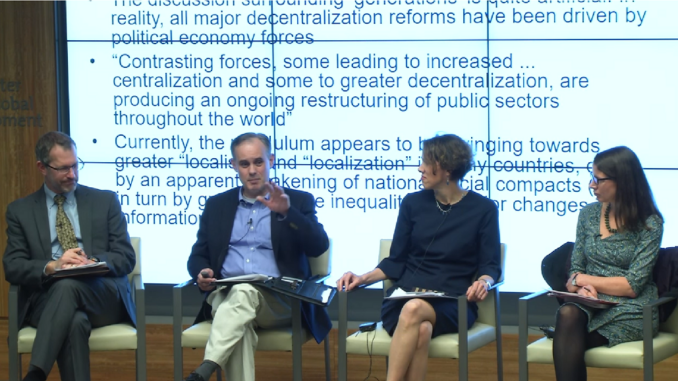
Decentralization is a loaded term. It is often mischaracterized as the solution, as opposed to a complex and dynamic multivariate element within the landscape of the social contract. Permutations can be either liberating or deleterious, or both.
The first wave of post-World War II decentralization occurred in the 1970s and 1980s with a focus on deconcentration. Beginning in the mid-1980s, the second wave included political power sharing, democratization, and market liberalization and brought in the private sector. The 1990s ushered in participatory decision making through civil society participation. The 2000s have seen a resurgence of development partner interest and funding for the next wave of decentralization.
On Friday, March 29, 2019, Abt Associates and Democracy International hosted a panel discussion on the recent history of decentralization and the expected nature of the next wave of decentralization. Panelists informing this discussion included Jamie Boex (Duke Center for International Development), Jana Hertz (RTI International), Hamish Nixon (Abt Associates) and Corinne Rothblum (USAID). The panel discussion was introduced and moderated by David Hoehner (Louis Berger).
The panel discussion–followed by a question-and-answer-session–explored important policy questions, such as: What motivates decentralization efforts? How are countries doing in the latest reform efforts? What have we learned from recent project interventions? The panelists shared insights from recent reforms and project experiences in the Philippines, Nepal, Kenya, Indonesia, and Papua New Guinea to explore answers to these questions.
View a video of the panel discussion (above) or visit Abt Associates’ website for the panel discussion’s full event details.



